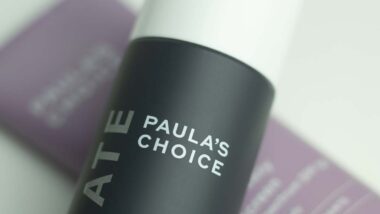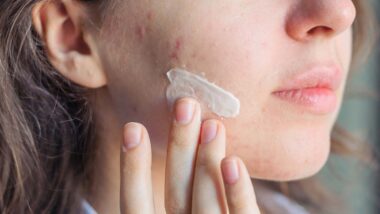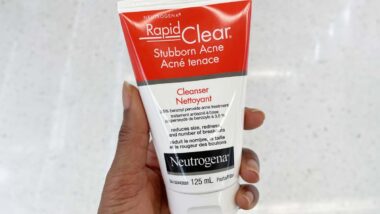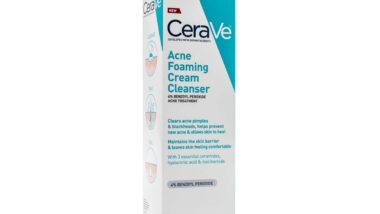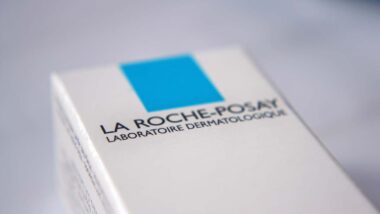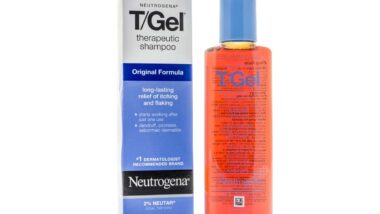Top Class Actions’s website and social media posts use affiliate links. If you make a purchase using such links, we may receive a commission, but it will not result in any additional charges to you. Please review our Affiliate Link Disclosure for more information.
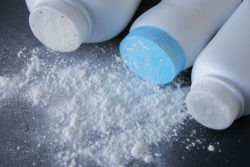
Plaintiff Kathleen A. has named Johnson & Johnson, Imerys Talc America and the Personal Care Products Council (PCPC) as defendants in the ovarian cancer baby powder lawsuit.
Her complaint states that her ovarian cancer was caused by long-term use of Johnson’s Baby Powder and Shower to Shower. Both products contain talc that was mined and sold by Imerys, she alleges.
Facts of the Case
According to her ovarian cancer baby powder lawsuit, Kathleen had been using the product all her life, beginning in 1943. In 2015, she was diagnosed with ovarian cancer.
She points out that a number of peer-reviewed scientific studies published between 1971 and 1993 have found strong evidence of an association between genital use of talc-containing products and an elevated risk of ovarian cancer. At the same time, she claims, Johnson & Johnson continued to engage in an aggressive and persuasive marketing campaign, aimed primarily at women.
When the aforementioned studies began coming out, Kathleen says, PCPC (then known as the Cosmetic Toiletry and Fragrance Association) started a campaign to defend talc. The campaign went so far as to lobby Congress against passing any safety regulations and create its own “studies”. The campaign was largely funded by Johnson & Johnson and Imerys Talc, she claims.
Ovarian Cancer Baby Powder Lawsuit: Evidence for the Plaintiffs
Kathleen’s ovarian baby powder lawsuit cites studies dating back more than a half-century “…showing conclusively that the frequent use of talcum powder in the genital area poses a serious risk of ovarian cancer.” According to the International Agency for Research on Cancer (IARC), she says, perineal use of talc can raise a woman’s risk of contracting ovarian cancer by as much as 60 percent. The IARC has classified genital use of talc-containing products as a “Group B” human carcinogen.
The complaint says that in 2006, the government of Canada began listing talc as a “D2A” substance, placing it in the same category of known carcinogens as asbestos. That same year, co-defendant Imerys Talc started issuing warnings to its customers about Canada’s actions as well as the IARC classification.
An Asbestos Connection?
One issue that has come up in more than one recent ovarian cancer baby powder lawsuit is the presence of asbestos fibers in talc-containing products. Geologically, asbestos deposits are known to form near areas in which talc is found. Although Johnson & Johnson has claimed that its products have “never contained asbestos,” a plaintiff in California who brought a suit against the company in 2017 alleged that her mesothelioma was caused her use of baby powder.
The significance is that mesothelioma (an aggressive, painful and invariably fatal cancer of the visceral lining) has only one known cause: asbestos exposure. Furthermore, an earlier lawsuit against Colgate-Palmolive over talc exposure and mesothelioma ended in a $13 million verdict for the plaintiff.
Scientists have determined that talc does pose a cancer risk all by itself, the presence or absence of asbestos notwithstanding.
A Day of Reckoning
Significantly, Imerys settled a recent ovarian cancer baby powder lawsuit brought by 22 plaintiffs last August. The case, which included co-defendant Johnson & Johnson, ended in a $4.6 billion verdict for the plaintiffs. Although Johnson & Johnson is appealing that decision, there are still approximately 12,000 more lawsuits pending against the company.
Plaintiff Kathleen A.’s Ovarian Cancer Baby Powder Lawsuit is Case 1:18-cv-02733, U.S. District Court for the District of Columbia.
Do YOU have a legal claim? Fill out the form on this page now for a free, immediate, and confidential case evaluation. The attorneys who work with Top Class Actions will contact you if you qualify to let you know if an individual lawsuit or class action lawsuit is best for you. [In general, baby powder cancer lawsuits are filed individually by each plaintiff and are not class actions.] Hurry — statutes of limitations may apply.
ATTORNEY ADVERTISING
Top Class Actions is a Proud Member of the American Bar Association
LEGAL INFORMATION IS NOT LEGAL ADVICE
Top Class Actions Legal Statement
©2008 – 2024 Top Class Actions® LLC
Various Trademarks held by their respective owners
This website is not intended for viewing or usage by European Union citizens.
Get Help – It’s Free
Join a Free Baby Powder Cancer Class Action Lawsuit Investigation
If you used Johnson’s Baby Powder, Shower to Shower, or another talcum powder product and were diagnosed with ovarian cancer, you may have a legal claim. Family members of loved ones who died of ovarian cancer can also join. Submit your information now for a free case evaluation.
An attorney will contact you if you qualify to discuss the details of your potential case at no charge to you.
PLEASE NOTE: If you want to participate in this investigation, it is imperative that you reply to the law firm if they call or email you. Failing to do so may result in you not getting signed up as a client or getting you dropped as a client.



